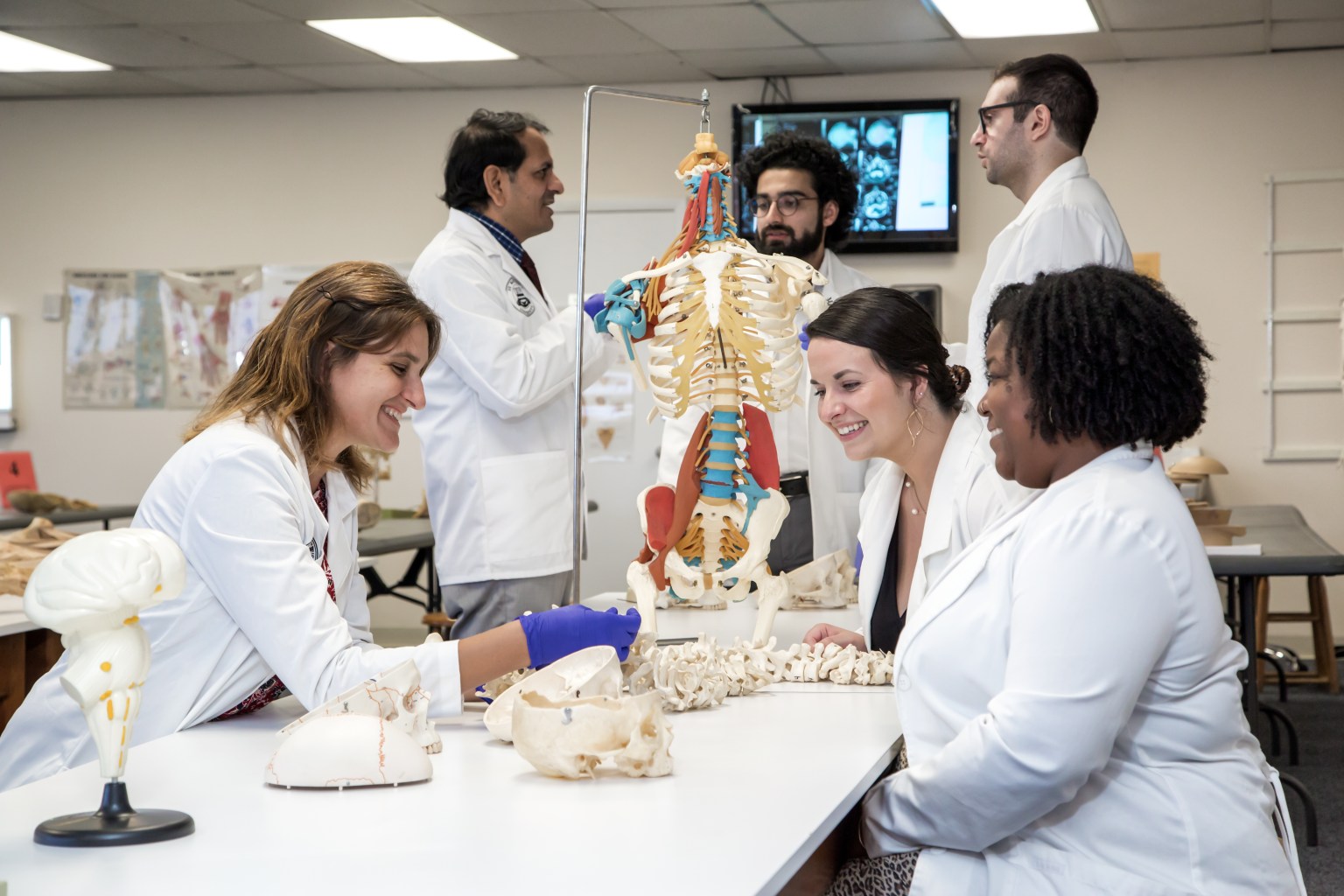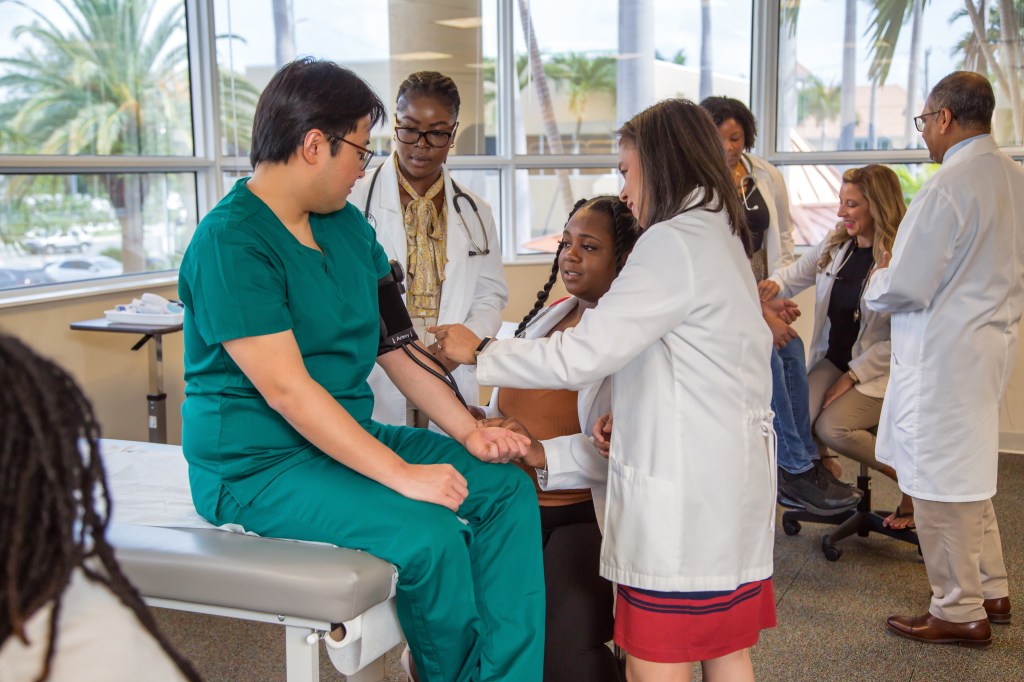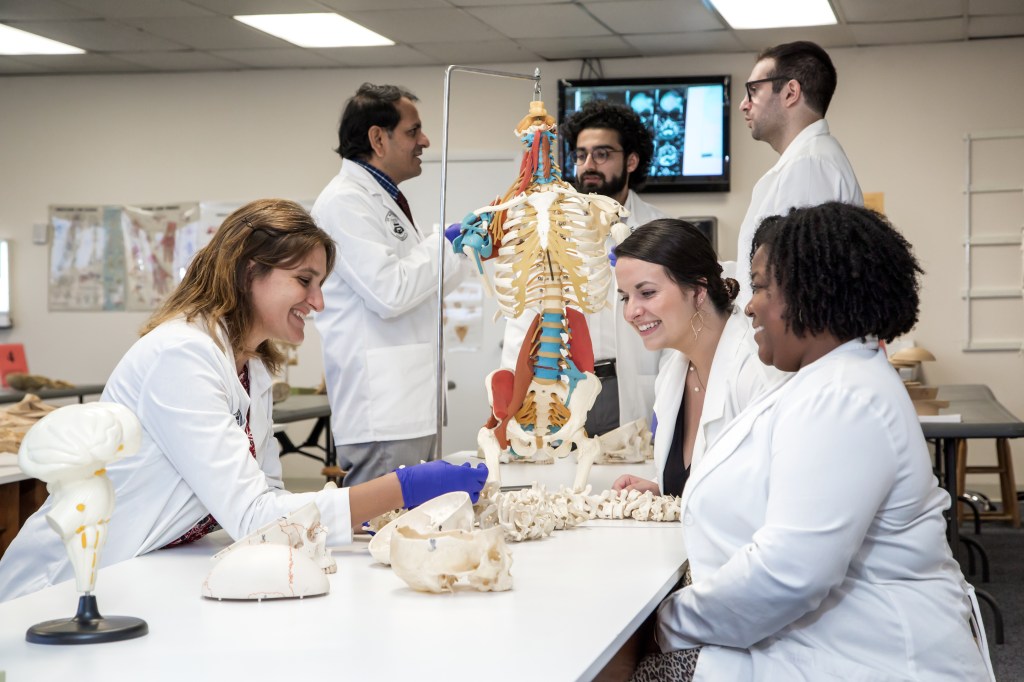
7 Common Questions and Answers About Match Day
Learn more about Match Day, the annual event when thousands of medical students find out where they will be undertaking their residencies.
Discovering your path in medicine is a journey marked by key milestones, and none are as career-defining as medical school residency Match Day. As a prospective medical student, you’re undoubtedly aware of a residency’s role in shaping your future. It’s not merely another phase of training; it’s the bridge to your specialization, charting the course for your next three to seven years after medical school.
At St. Matthew’s University School of Medicine, we celebrate the significance of this important day and are happy to offer insights that will help you better understand the entire Match process.
What is Match Day?
Match Day is an annual rite of passage, occurring every third Friday of March, when the dreams of thousands of medical students converge. It marks the end of an extensive process that involves medical specialty exploration, residency applications and interviews, and ranking preferred placements. Then, through the intricate workings of the National Resident Matching Program (NRMP) algorithm, students are paired with residency positions accredited by the Accreditation Council for Graduate Medical Education (ACGME).
Given the importance of a Match Day residency placement in the journey of an aspiring physician, there are understandably many questions about how the process and event itself unfolds. So let’s dive right in and provide some answers.



Question 1: How Does the Match Day Process Work?
The residency Match process is highly complex and depends on both the student’s and residency location’s preferences. The NRMP decides on residency placements using an algorithm that matches your residency rankings against the available positions, while also taking into account the residency location’s preferences as well. The process starts towards the beginning of your fourth year in medical school and may include the following steps:
- You submit applications for different residency programs through the Electronic Residency Application Service (ERAS).
- You are chosen for residency interviews based on your grades and United States Medical Licensing Examination (USMLE) performance.
- You create an ordered list of your preferred programs.
- You wait until the NRMP calculates and releases your placement on Match Day.
Question 2: What Are My Chances of Matching into Residency?
Your chances of securing your desired residency hinge on your academic outcomes, USMLE Step 1 and Step 2 CK exam performance, exemplary interviews and meticulous submission of information to the NRMP. This all relates to your own dedication, as well as the training and support provided by your medical school.
Over the last four years, St. Matthew’s University School of Medicine (SMUSOM) students achieved a 96% residency placement rate1, meaning future students can have confidence in their ability to secure a residency position for after graduation.
Question 3: When is Match Day?
Match Day occurs each year in March, generally on the third Friday of the month. It marks the end of Match Week, when students find out on Monday if they’ve matched, and then on Friday where they will be undertaking their residency. It is an extremely exciting time for medical students, faculty and the entire campus community.
Match Day 2025 is on Friday, March 21.
Question 4: What Happens if You Don’t Match with a Residency Program?
If a medical student does not receive a Match, the Supplemental Offer and Acceptance Program (SOAP) process offers a lifeline, allowing you to secure a suitable position amidst remaining vacancies.
If you discover that you haven’t yet been placed on Match Monday, you have an hour to submit up to 45 applications to the Electronic Residency Application Service (ERAS). You can then undergo interview calls over the phone on Match Tuesday and Match Wednesday. If you still need to be matched by the end of Wednesday, you can contact residency programs with open positions to negotiate a Match directly.
At St. Matthew’s University School of Medicine, students facing this possibility also receive extensive support from faculty and administrative teams. It may sound daunting due to the condensed nature of the process, but you will not face it alone and we are confident we can help you find an appropriate residency placement.
Question 5: What Happens After Match Day?
With the revelation of your residency placement, the blueprint for the next three to seven years of your life is set. You might need to relocate to a new city, depending upon your placement. Most residency positions start in June, so it’s essential to use the time between March and June to complete any remaining academic requirements, plan for life in residency and prepare for the exciting next step in your medical journey.
Question 6: How Do I Boost My Prospects on Match Day?
You can increase your chances of securing a desired placement on Match Day by:
- Focusing on achieving positive academic and USMLE outcomes throughout medical school.
- Evaluating many different residency programs and crafting an impactful application to each one that you find appealing (SMU offers residency application support).
- Preparing extensively for your residency interviews (SMU also offers interview prep support).
- Putting a great deal of thought into your rankings (the algorithm evaluates your submitted order, so make sure your rankings reflect your goals and desires).
- Including as many programs as possible (the algorithm does not penalize you for a long list, so increase your odds by including all the placements that match your goals).
- Acting quickly to secure a suitable position among the remaining vacancies, if you aren’t matched on Match Monday.
Question 7: Can I Leave My Allotted Residency Placement in Favor of Another?
Accepting a Match generally obligates you to attend the residency allotted to you for at least 45 days. However, you can usually leave your residency after that and re-enter the Match process for the following year. However, this is something to consider carefully, as it can potentially have a negative impact on future residency placements.
Conclusion
As you continue along your journey to becoming a practicing medical doctor, remember that your choice of medical school lays the foundation for your success. At St. Matthew’s University School of Medicine, we pride ourselves on nurturing future physicians and equipping them with the skills and knowledge needed to excel in their endeavors.
To learn more about our internationally accredited Doctor of Medicine (MD) program, as well as becoming a resident physician, check out this graduate testimonial video:
Contact us to learn more, then apply when you’re ready to achieve medical school success!
1Four Year Residency Placement Rate is the percentage of students attaining a residency position out of all graduates or expected graduates in 2020-21, 2021-22, 2022-23, and 2023-24 who were active applicants in the NRMP match or attained a residency outside the NRMP match.